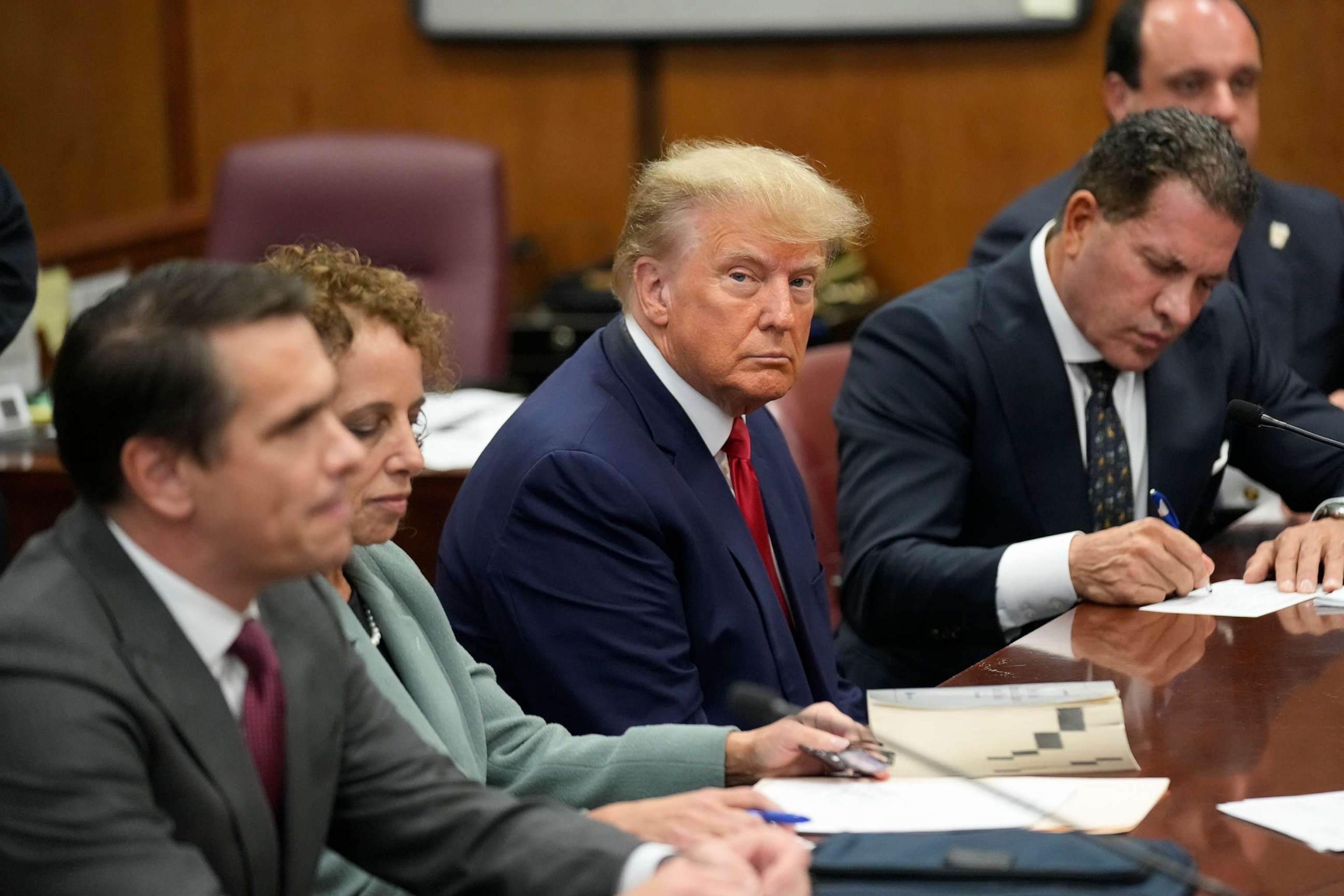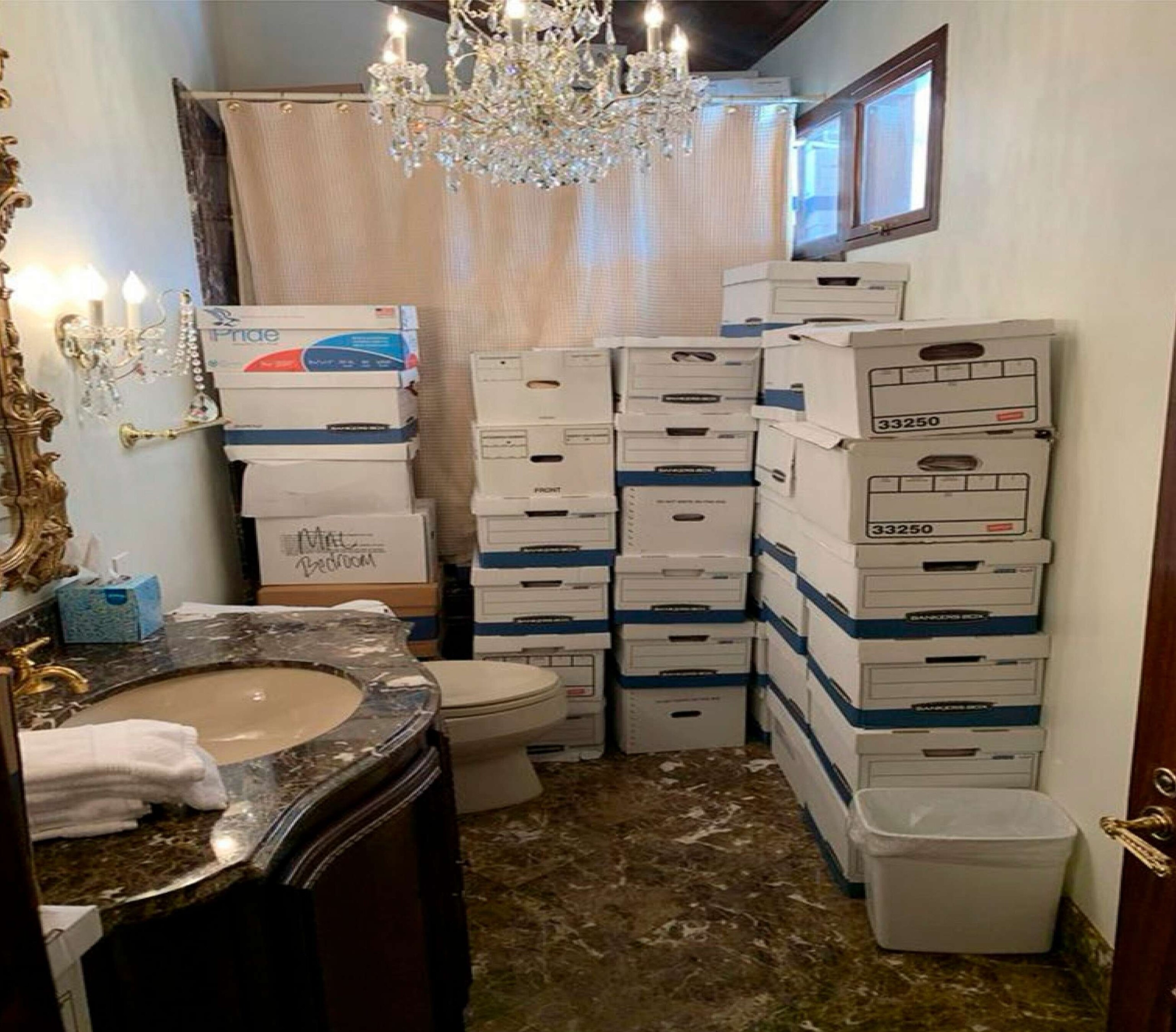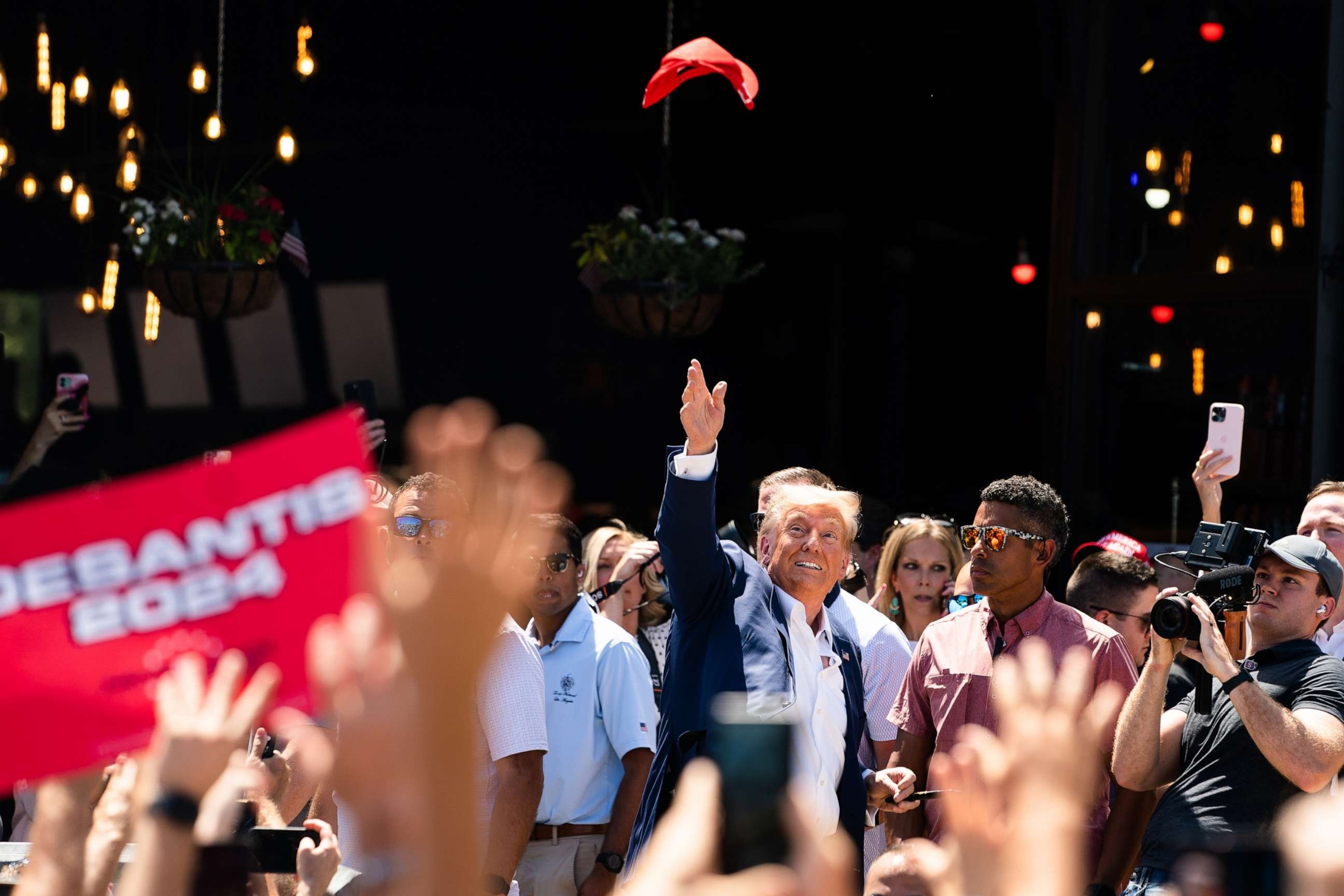Trump says he would take the stand during his trials
That would mark an unprecedented and highly unusual move.
Former President Donald Trump claimed in a new interview that he would testify in his defense if any of the four criminal cases he is charged in go to trial. At the same, he also downplayed the significance of him sitting in a courtroom instead of being out on the campaign trail.
"I look forward to testifying. At trial, I'll testify," Trump insisted to radio host Hugh Hewitt on Wednesday.
Trump faces 91 criminal charges across four different cases, including in state court in Fulton County, Georgia, and in New York City as well as federal charges in special counsel Jack Smith's Jan. 6 and classified documents probes, in Washington, D.C., and Florida, respectively.
He has pleaded not guilty to all charges and claimed he is being targeted because of his politics, which prosecutors reject.

Pressed by Hewitt on Smith's classified documents case against Trump, in which he is accused of withholding government secrets after leaving office and not returning them, Trump grew irate at the repeated line of questioning over his handling of the sensitive materials, refusing to answer if he ordered anyone to move boxes of documents at his residence.
"I don't talk about anything. You know why? Because I'm allowed to do whatever I want," Trump claimed, using his usual defense of being "covered" by the Presidential Records Act.
Trump is charged in that case under the Espionage Act, which is a separate law from the Presidential Records Act.
Though Trump said he would "absolutely" testify in his trials, the court dates could pull him away from the trail during a crucial period of campaigning.

Taking the stand would also mark a historic and highly unusual development, as many defendants elect to use their constitutional right not to be compelled to testify -- and then be subjected to cross-examination under oath -- versus the benefits of being able to make their case directly to jurors.
U.S. District Judge Tanya Chutkan has ordered Trump's 2020 election interference and Jan. 6 trial to begin on March 4, a day before Super Tuesday and also likely overlapping with his trial in New York City over hush money payments.
In a hearing in the Fulton County election case on Wednesday, prosecutors said that they anticipate that trial against all 19 defendants in the case would take four months -- not including jury selection -- and that the state plans to call more than 150 witnesses.

Asked by Hewitt on Wednesday how he will effectively campaign for president if he is sitting behind a defendant's table, Trump said he and his legal team would be asking for "many dismissals."
When asked if he's worried about any of his allies potentially flipping on him, Trump told Hewitt, "I'm not worried about anything."




